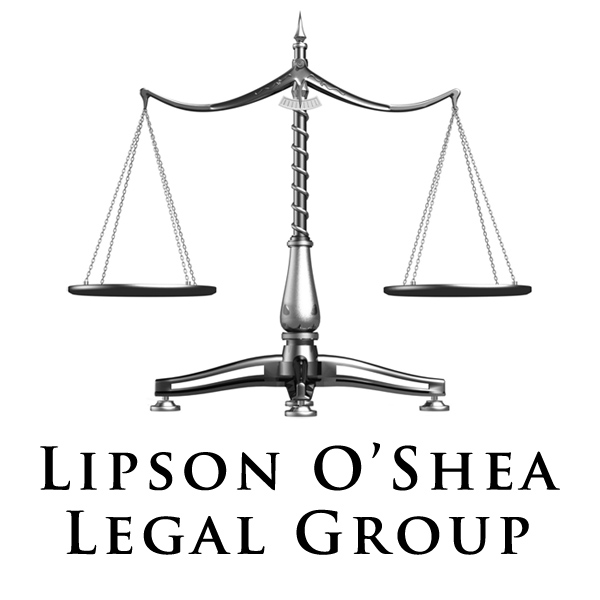No one has more experience than we do in defending those accused of a DUI offense.
Don't risk your case on lawyers who are "learning" on your case. A DUI or DWI arrest can make for one of the worst days in your life. WE KNOW.
You did not mean this to happen, but now is the time to take action.
We know exactly what questions you have and getting your driving privileges back is our number one priority.
Here's why Lipson O'Shea Legal Group is your choice for DUI and DWI Defense:
We continuously study and practice DUI/DWI/Traffic law
We are in Ohio courtrooms almost every day
We have actually tried many many hearings and trials on DUI issues
We frequently teach other lawyers on how to defend DUI cases
We are available 24/7 - we never close
We accept online payments
Call us at 216-239-0000 (24/7) or fill out the form below:
We know you want your driving privileges back, call 1-800-529-1966 or email us at michael@moshea.com.
Ohio DUI and DWI Defense Information
This page summarizes the basic of Ohio law on driving under the influence (OVI) and over the legal limit (BAC).
What is driving "under the influence" or "over the legal limit"? In Ohio, alcohol related offenses include BOTH:
driving driving under the influence of alcohol or a drug of abuse (often referred to as "OVI"); and
driving over the legal limit (often referred to as "BAC").
One can be convicted be "under the influence" if a jury determines that: "the defendant consumed some alcohol or drug of abuse, whether mild or potent, in such a quantity, whether small or great, that it adversely affected and appreciably impaired the defendant's actions, reactions, or mental processes under the circumstances then existing and deprived him of that clearness of intellect and control of himself which he would otherwise have possessed." Only lawyers and judges could come up with such a long and convoluted definition. However, this is generally the instruction given to juries when they deliberate in a DUI/DWI trial. In Ohio, even if you are not "under the influence," you may still be guilty of a alcohol related crime if you are "over the legal limit." Driving over the legal limit is not the same as driving under the influence" (although the two may certainly occur at the same time and one may be charged and convicted of both). As you are probably aware, a person can be over the legal limit without that level of alcohol impairing the person's ability to drive (or do other things) appropriately. Conversely, a person can be under the legal limit and still have that level of alcohol impair that person's ability to drive (or do other things). In Ohio, the legal limit for persons 21 and over is any of the following:
.08% (by weight) for blood, or
over .08 of 1 gram (by weight) per 200 liters of for breath, or
.14 of a gram (by weight) per 100 milliliters of urine.
For persons under 21 it is even less (e.g. .02% (by weight) for blood.) It is possible to be charged with both being under the influence and driving over the legal limit, and it is possible to be convicted of both. However, if one is convicted of both (for the same incident), then he can only be sentenced for one. Most times a person is arrested for a DWI offense, they are charged with both. This way the police and the prosecution have two shots at a conviction. Recent changes in Ohio law now make it a crime (very much like OVI/BAC) to drive a vehicle with a specific level of certain drugs in your system. This law is rather new, and is still being tested in the Courts. Safe to say, even if you claim not to be "under the influence"of the drug in question, you may still be guilty of a crime of the police can detect an amount of htis drug in your blood. Stay tuned for details. Try to measure your possible alcohol content using this utility from Intoximeters Incorporated.
What constitutes "driving" or "operating" a motor vehicle?
A number of issues can arise when the person arrested or suspected of a DWI offense is not seen or located in a moving vehicle. For instance, what happens if the individual is just sitting (or, in some cases, sleeping) in his car in a parking lot with the motor running? Is he "operating" the automobile? The answer, for the most part, is yes. The Supreme Court of Ohio has clearly stated that "an intoxicated person who is in the drivers' seat of a motor vehicle parked on private or public property with the key in the ignition is operating the vehicle ...." As a practical matter, given the wide support for programs such as MADD, and the political influence MADD support generates, most judges will go to some lengths to find that an intoxicated person was operating an automobile in these questionable situations.
What issues does a lawyer help you with if you have been arrested and charged with a DUI offense?
Since most people already know that "first offender" DUI defendants are suppose to get three days in jail, and since it is assumed that most DUI cases are hard to beat at trial, some might think that a lawyer is useless once one has been arrested and charged with a DUI offense. However, this is very untrue. Attorneys who handle DUI cases are aware of the following DUI issues and, generally, how to handle these issues for their clients:
The legality of the stop. Sometimes it is illegal for a police officer to pull a person over. A police officer must have what the law calls "reasonable suspicion" before that officer may pull over an automobile. An effective lawyer knows how to discover whether the police officer had the legal authority to pull a person over.
The legality of administering a "field sobriety test." Before anyone can be arrested by a police officer for a DUI offense, the office must generally conduct what is called a field sobriety test. These tests are usually coordination/comprehension tests designed to see if the driver has certain minimal coordination and comprehension. These tests include the finger to nose test, walking in a straight line, counting backwards or reciting the alphabet. The officer can also conduct what is called a horizontal gaze test. The officer will ask the driver to follow his finger to see when the driver's eyeballs begin to flutter. Before all of these tests are administered, the officer must have some "reasonable suspicion" that the driver has been drinking. This "reasonable suspicion" can be gained from a number of things, including watching the driving patterns of the driver (i.e. before the driver was pulled over), glassy eyes and the odor of alcohol around the driver. This "reasonable suspicion" must, for the most part, be separate from the "reasonable suspicion" needed to pull the automobile over in the first place. An effective lawyer knows how to determine whether the officer had this "reasonable suspicion," or whether the officer just decided to administer the field sobriety tests for other reasons.
The method of administering a "field sobriety test." Once the officer has "reasonable suspicion" that the driver is intoxicated (and thus has grounds to administer the field sobriety test), the officer must still administer that test in the right way. An effective lawyer knows how to determine whether those tests were conducted in the proper way.
The DUI machine. In the event the driver fails the field sobriety tests, the officer is then free to arrest the driver for DUI, and then escort the driver to the police station to submit to a breath or urine analysis. Most police stations have a machine commonly referred to as a "breathalyzer," which is a machine which can, for the most part, very effectively measure the amount of alcohol in a person's breath. Under Ohio law, any person who has been issued an Ohio driver's license has, as a condition to the issuance of that license, unconditionally consented, anytime upon request, to submission to a test of his or her breath, blood or urine for the presence of alcohol. However, there are some rigorous procedures that these machines must go through in order for results from these machines to be admitted at trial. These procedures include regular "calibration" of, and placement of, these machines. An effective lawyer knows how these machines are to be used and how they are to be maintained.
Past DUI offenses. The more times one is arrested for DUI offenses, the more severe the penalties (as further described below). An effective lawyer knows what prior offenses the court can take into consideration in passing sentence.
Getting an automobile out of impoundment. If a driver is arrested in a DUI offense, his automobile can be seized by the arresting officer. Further, this automobile can eventually be forfeited to the State of Ohio if the driver has had enough prior DUI convictions. Sometimes, however, the automobile is owned by another person (i.e. other than the driver). An effective lawyer can see that an automobile is returned to the proper owners as soon as possible.
Getting the driver's license back. A driver's license can be suspended for specified minimum periods of time once a driver is convicted of a DUI. However, once the license suspension period is over, the Bureau of Motor Vehicles will not simply send the license back to the driver. The driver must know when to request the license back, where to request it and how much it will cost (or can cost). Many drivers think they can simply start driving once the suspension period is over. Not true. There is a specific "reinstatement" process, with specific procedures and specific costs. An effective lawyer knows when and how to get the license back.
Penalties for DUI offenses.
What gains most attention in conversations concerning DUI offenses are the penalties one can face in the event of a DUI conviction. This is probably because any person, regardless of whether or not they have ever had any adverse contact with the criminal justice system, can be "nailed" for a DUI offense. Two glasses of wine with dinner can put a driver over the legal limit, or so impair that driver's abilities such that the driver can be driving under the influence. Nevertheless, the possible penalties are the same for everyone, and the minimum penalties that the court must impose are the same for everyone. In Ohio, there are a series of penalties that one can get for a DUI conviction. Go to: DUI Penalties and Driver License Suspension Penalties to see a summary of these penalties. NOTE: THESE PENALTIES ARE CONSTANTLY CHANGED BY THE OHIO GENERAL ASSEMBLY ALL OF THE TIME, SO CHECK WITH AN ATTORNEY FOR THE MOST RECENT PENALTIES.
It must be stressed that there a many exceptions and possible variations to these penalties, depending on the municipal and common pleas judge who interprets the DUI law and passes the sentence. For instance, some judge have "policies" on how first and second offenders are treated, and those policies may differ significantly from the policies of other judges. This is another instance where a lawyer with sufficient experience with the court/judge in question can be of significant help.
Further, all DUI/DWI/OMVI convictions are suppose to carry six (6) points on your driver's license. So just 2 convictions alone can lead to a twelve (12) point suspension of your driver's license, which trigger a whole set of other legal proceedings in order to get driving privileges for work.
Further, any third or more conviction requires the Court to order mandatory "treatment" for the defendant.
Further still, the Ohio Bureau of Motor Vehicles will charge a $405.00 "reinstatement fee" in order to get your license back after your court-ordered suspension is over.
Further still, the foregoing penalties literally double if the blood alcohol (by breath) reading exceeds .17. Also: Check the Administrative License Suspension ("ALS") penalties for testing (at the time of arrest) over .08 or refusing the test, as well as the penalties for driving with a license that has been suspended pursant to a DUI arrest:
What to do if arrested.
There is much debate among attorneys on what a person should do and not do once arrested for a DUI offense. Some attorneys are of the opinion that the DUI arrestee should never submit to any medical or medical tests which attempt to measure the presence of alcohol. These attorneys (and some judges) believe that to do so is a complete waiver of one's Fifth Amendment rights to remain silent. However, a refusal to submit to those tests will result in an automatic suspension of your driver's license - regardless of whether or not you were over the legal limit or actually under the influence. It is our firm's experience that one should always consult with an attorney before taking the test. However, given the time of day that most arrests take place (i.e. late at night) the ability to consult with any attorney will be compromised. If the delay between the request (by the police) and the time you make the decision to take the test is too long, the law will presume you have refused the test. Thus, make sure the attorney you desire to consult with has a 24 hour consult phone contact. Our firm has such a line.
About Mr. O'Shea.
Mr. O'Shea's DUI defense practice takes him to Courts all over the Northeastern part of Ohio, and, at times, all over the State of Ohio (including such communities as Portsmith, Ohio, Oxford, Ohio, Athens, Ohio, Conneaut, Ohio, Sandusky, Ohio, Columbus, Ohio to name a few). Mr. O'Shea has had involvement with many judges and prosecutors (all with their own interpretation and policies when dealing with DUI violations), and has learned how to adapt to the courtroom or venue where each case finds him. Mr. O'Shea has paid close attention to the many recent amendments to Ohio's DUI laws, and has found (as both a city prosecutor and as a DUI defense lawyer) that there are many lawyers and judges who have failed to keep up with all of these important amendments. Mr. O'Shea has had the opportunity to analyze and conduct many DUI hearings, and has analyzed many DUI videos and DUI police reports, and is keenly aware of what is (and is not) important to evaluating a DUI charge.
Mr. O'Shea believes that it is vital to effective DUI defense that he be available almost all of the time, and has dedicated at toll-free 24/7 number for those pulled over and/or charged with DUI offenses to call: 800-LAW/529-1966.



















